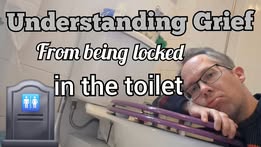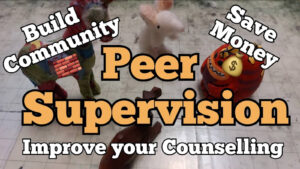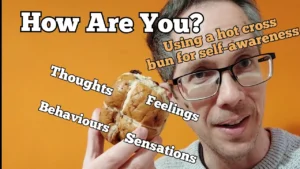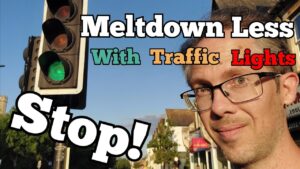Contents
Everyone's a Bit Autistic?
You may have heard other people sat this or even said it yourself. In this article I want to challenge that sentence slightly in a autism affirming friendly.
Reasons People Might Say This
1. They are Against Autism
This group are actively against labels & medicalization. They might even not believe in autism.
With the first group, I’m at a cross-road of saying “it is a very real and studied spectrum condition unique for every single person”, and if you distrust medical diagnosis then there’s not much more I can say to convince you that autism is a real neurotype and not just a subset of human experience. All I can really say is thanks for reading, and I hope you’re able to find out more about autism (even if you don’t believe in it) and have the respect and compassion to understand the nuances of what people mean when they say that they are autistic.
2. They are Naïve or well meaning
This other group are either naive, or they’ve actually got quite a positive motivation in in saying “everybody’s a bit on the spectrum”.
I wonder if they are just trying to connect with somebody when they are telling you about their autistic experience e.g. the importance of routine, sensory sensitivities, or communication difficulties and they might relate to aspects of that to a degree so decide they are on the spectrum minimally. The motivate may be quite pure – trying to connect with an autist as a neurotypical to show their experience resonates and even normalise it. The potentially error from this, is that it misses the autistic experience – to give a crude analogy, it’s a bit like saying you understand what depression is like or denying it because you experience sadness.
Getting a Diagnosis
An autism diagnosis requires diagnostic interviews and observations by professionals and those will be graded and measured needing aspects of an autistic profile to be at certain thresholds to lead to diagnosis. To pick up my depression analogy – sadness may be part of depression but it needs to meet clinical thresholds alongside a whole host of other symptoms that interfere with someone’s life. In the same way, having routine/being organised or struggling with social communication may be part of normal human experience, but the threshold will be different and alongside other symptoms in autism. Autism needs to have also been presence since childhood also – it’s a neurotype you are and are born with rather than something that you develop through life.
I would love to plug a blog post I have written “how autism affects you” which goes into a lot of detail about different parts of autism, and there’s also a very handy questionnaire you can fill in alongside it which talks more about autism. If you’re a neurotypical person and you fill that in, there will be parts of it that resonate with you, but the fact that some of those symptoms resonate doesn’t mean that you are autistic.
Identity First Language
You may have noticed me saying is autistic rather than has autism. You might think to yourself that that’s quite defining to say somebody is autistic and you may disagree. With our depression example, you would say ‘has depression’ rather than ‘is depressed’ as you don’t want a mental health condition to define a person. Autism isn’t a condition though (as much as I prefer calling it a condition than a disorder), it’s a neurotype just like ADHD, OCD, Dyslexia, Dyspraxia….
We say people are neurodiverse, rather than have neurodiversity. Neurodiversity isn’t something you catch, a condition that develops, it’s fundamentally having different wiring in the brain. You’re born with it and these same diagnostic tests need to be present from childhood. You can’t become autistic – you are autistic, or you’re not. We can’t be a little bit autistic- we are or we’re not. It’s the same thing with neurotypical identity first language – you wouldn’t say to somebody “I have neurotypical”, you are neurotypical it informs your whole being.
Dangers
“Everyone’s a bit autistic” can be quite dismissive of people, like someone saying, “everyone’s a little bit neurotypical”. It diminishes autistic identity, it denies people the struggles that come with being autistic in a neurotypical world where the autistic experience means constantly adapting.
Pretending the autistic experience isn’t valid or real just forces autists to mask more which is exhausting. It invalidates real support needs, and worst of all – it fuels that self-blame that autists often feel of not being good enough. They’re left with a sense of being deficient, or not trying.
Simon is a Person-Centred Counsellor in Oxford working remotely and in person. He has lived in the county his whole life, and the city for almost 20 years. He appreciates the beauty of the city, nature, and connecting with people to help bring about meaningful change.
He is also a geek – who gets tremendous joy from gaming, crafting, cosplay, and creativity







